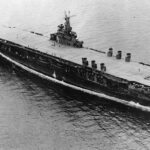What’s the Greatest Example of Human Willpower and Discipline Ever In History?
What’s the Greatest Example of Human Willpower and Discipline Ever In History? The concept of human willpower and discipline can be interpreted in various ways, and different examples resonate with different people. Here are a few widely regarded instances throughout history:
Nelson Mandela:
His commitment to the struggle against racial oppression in South Africa and his ability to emerge from prison advocating for reconciliation rather than revenge are often seen as profound examples of willpower and discipline.
Mahatma Gandhi:
Gandhi’s philosophy of nonviolent resistance (Satyagraha) during India’s struggle for independence from British rule exemplified extraordinary discipline. He led various movements, including the Salt March, using civil disobedience and fasting as tools of resistance, demonstrating immense self-control and commitment to his ideals.
Viktor Frankl:
Frankl, a Holocaust survivor and psychiatrist, detailed his experiences in concentration camps in his book “Man’s Search for Meaning.” His ability to find meaning and purpose even in the direst circumstances showcased an incredible level of mental discipline and willpower.
Tenzing Norgay and Edmund Hillary:
The first successful ascent of Mount Everest in 1953 required immense physical and mental discipline. The rigorous training, planning, and perseverance they exhibited to conquer the world’s highest peak illustrate the extraordinary willpower required to achieve monumental goals.
Stephen Hawking:
Despite being diagnosed with ALS at a young age and given only a few years to live, Hawking continued to work and contribute to theoretical physics for decades. His determination to push the boundaries of science despite physical limitations exemplifies willpower and discipline.
Each of these figures demonstrates how human willpower and discipline can lead to extraordinary achievements, often in the face of overwhelming odds.


